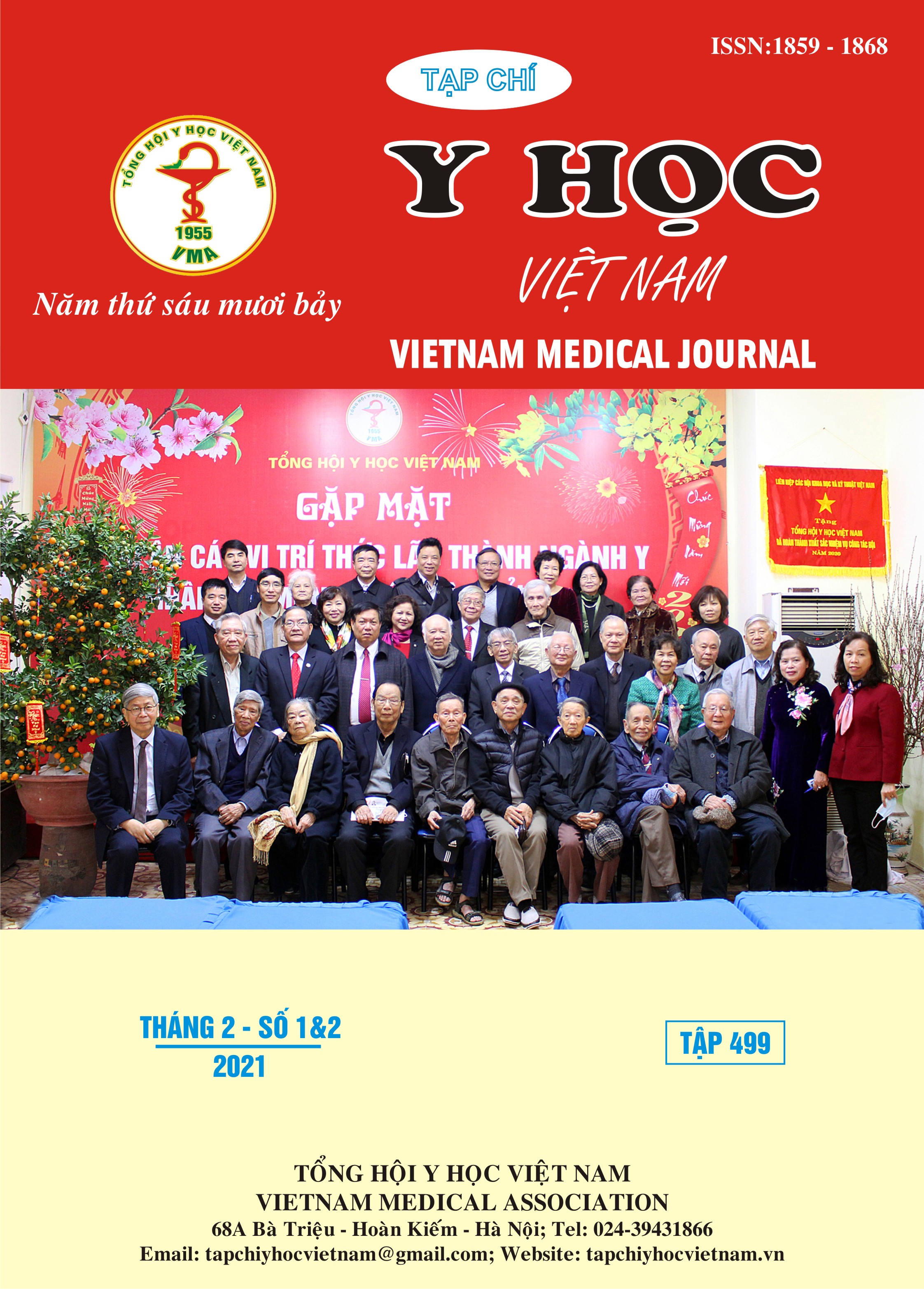ADVERSE EFFECTS OF ORAL ETHANOL THERAPY IN THE TREATMENT OF ACUTE METHANOL POISONINGS
Main Article Content
Abstract
Objective: to assess the adverse effects of oral ethanol regimen in the treatment of the patients with acute methanol intoxication. Subjects and methods: The adverse effects were evaluated in 61 patients with acute methanol poisoning who were indicated ethanol 20% orally according to the protocol at Poison Control Center (PCC) of Bach Mai Hospital from October 2016 to July 2018. Results: Average age was 46.7 ± 15 (16-71) years old, male accounted for 93.4%. Average age: 46.7 ± 15 years, male 93.4%. The poisonings mainly were orally (98.4%), however, there was one patient through respiratory tract (1.6%). The median of blood methanol concentration was 126 mg/dL. The side effects when using oral ethanol were central nervous system depression (18.2%), central nervous stimulation (18.2%). In addition, on the digestive system, nausea (31.8%), vomiting (10%), and increased transaminases (14.6) were common manifestations. Only one patient exhibited gastritis (1.6%), no patient had gastrointestinal bleeding and acute pancreatitis. No patient had complications with aspiration pneumonia hypoglycemia, or electrolyte disturbances. Conclusions: Research shows the main undesirable effects when using Ethanol as a specific antidote for patients with acute methanol poisoning.
Article Details
Keywords
methanol poisoning, oral ethanol, adverse effects
References
2. Phạm Như Quỳnh, Lê Đình Tùng, Hà Trần Hưng (2017). Hiệu quả của thẩm tách máu kéo dài trong điều trị bệnh nhân ngộ độc cấp methanol. Tạp chí Sinh lý học Việt Nam, 21(3), 13-20.
3. JacobsenD, Martin K.M, (2014). Methanol and Formaldehyd poisoning.Critical Care Toxicology, 895-901
4. Winchester J.F, (2014). Methanol, Isopropyl Alcohol, Higher Alcohols, Ethylen Glycol, Cellosolves, Acetone and Oxalate.Clinical management of poisoning and drug overdose 3rd edition, 35, 491-505.
5. Barceloux D.G, et al. (2002). American Academy of Clinical Toxicology practice guidelines on the treatment of methanol poisoning. J Toxicol Clin Toxicol, 40(4), 415-46.
6. Wedge M.K, et al. (2012). The safety of ethanol infusions for the treatment of methanol or ethylene glycol intoxication: an observational study. Canadian Association of Emergency Physicians CJEM, 14(5), 283-289
7. Beatty L, et al. (2013). A Systematic Review of Ethanol and Fomepizole Use in Toxic Alcohol Ingestions. Emergency Medicine International, Article ID 63805


